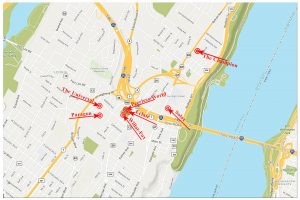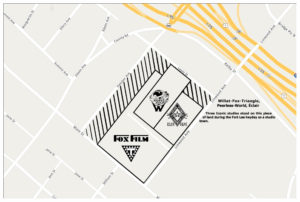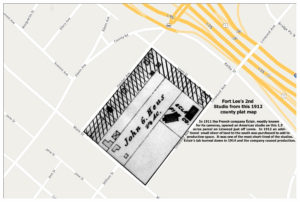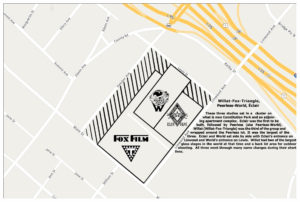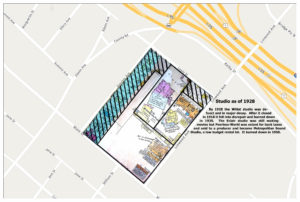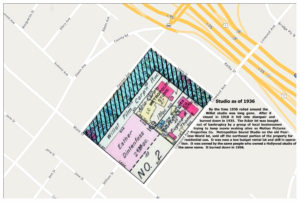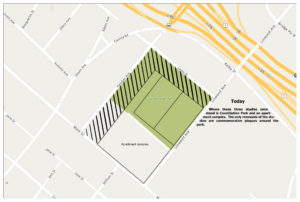Peerless-World
The Little Studio that Kept on Going
click to enlarge
Related Pages:
click to enlarge
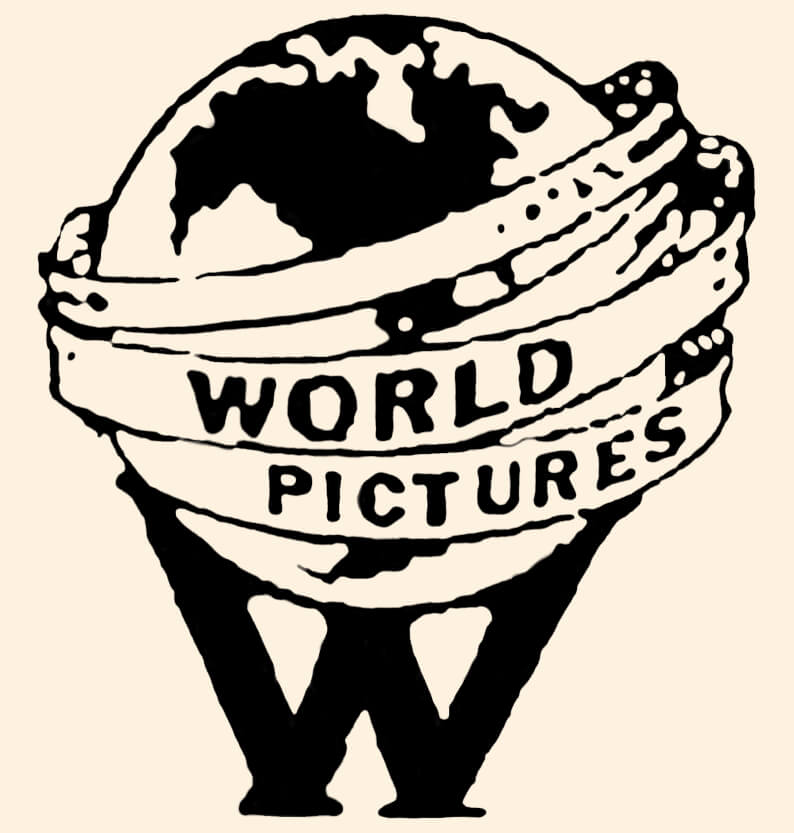
Peerless-World Studio
Lewis St., Fort Lee, NJ
Active 1914-ca mid-1958
The story of Peerless-World (aka World-Peerless) is the story of several companies working out of the same space. It is also kind of a continuation of its next-door neighbor, Éclair.
The story of the Fort Lee studios tends to be very incestuous, as the same names reappear over and over and weave in and out of one another. World and Peerless are two of those. Lewis J. Selznick and Jules Brulatour are a couple more.
In January 1914 Peerless Studios was incorporated. It broke ground on construction of the plant on March 19, 1914, very nearly simultaneously with the burning of the laboratory next door at Éclair.
Peerless Studio was built and owned by Charles Jourjon, the president of Éclair next door, and financed by Jules Brulatour (known as "the man who financed Fort Lee"), who was George Eastman's contact person in Fort Lee for film sales. Brulatour also financed Éclair and had a hand in many of the Fort Lee studios, eventually building his own studio.
On June 9 of that year, World Film Corporation was formed as a distributor of films based in New York. It was organized by industry newcomer, Lewis J. Selznick who had just had a short stint with Universal Film Mfg. Co. It was financed by Arthur Spiegel, of Spiegel Catalog fame, some Wall Street interests, and J.J. Shubert (the theatrical magnate), who combined their interests with those of the Peerless. Jourjon's Peerless position was bought out and Lewis J. Selznick (father of David O. Selznick) was appointed Vice President and General Manager of World Film while Spiegel server as President. Selznick moved his own production company to the Peerless-World studio lot.
The studio was rented out to a variety of independent producers and directors, but from this moment the fates of Peerless Studio and World Film were tied together and would forever be known as Peerless-World.
Peerless, at this moment, could boast the largest glass-enclosed studio in the world (120 feet by 80 feet though another source suggests it was 200' x 125').
World-famous director Maurice Tournour, who worked for Éclair in France and was sent to American Éclair to take charge of production, shifted his focus to the new Peerless studio after the shuttering of production there derailing his American debut. Famous actress Clara Kimball Young was put under contract by Selznick. Directing powerhouse Sydney Olcott was hired away from Kalem.
As production shifted to California, World was caught in the crossfire. They decided not to build a studio on the west coast. William Brady was installed as general manager and owners accused him of running it into the ground and by 1920 were in bankruptcy. Lewis J. Selznick grabbed control of his old studio again renaming it Selznick-Peerless. Selznick declared bankruptcy in 1923.
In April of 1925 (after most production had already fled town) four local businessmen purchased the Peeress site and renamed it Fort Lee Studios. They retooled it for the coming sound age. But it was too little, too late. They were closed by the beginning of sound pictures.
The studio was seized by the town for back taxes and resold to Phil Goldstone, a west coast independent and renamed Metropolitan Sound Studios. It became a studio known for its low rental rates, attracting well known black producer, Oscar Micheaux, who produced some of his biggest pictures there.
The studio lay idle until it burned to the ground in 1958.








